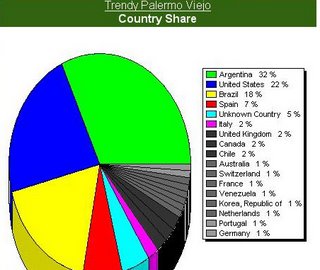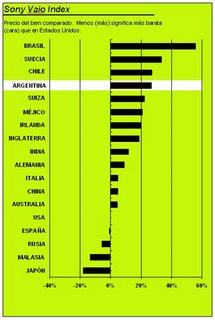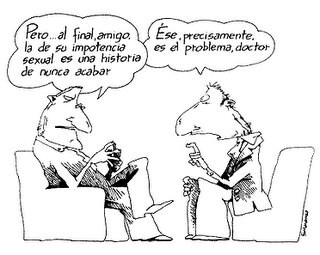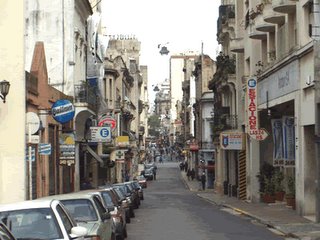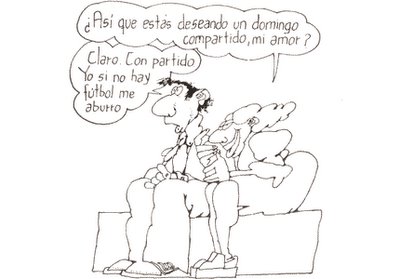La yerba mate despierta a los dormidos, corrige a los haraganes y hace hermanas a las gentes que no se conocen. (Eduardo Galeano)
"The
yerba mate awakens the sleepy, motivates the lazy, and brings strangers together."

The word
mate derives from the quichua word "mati", which means glass or recipient for drinking, but it has been generalized as the common name of the fruit of the gourd plant –Lagenaria vulgaris- especially the varieties used to prepare and serve the infusion of
yerba mate ("poro" and "galleta"). So, with the later proliferation of gourds made of the most varied materials, destined to prepare this infusion the word
mate began to be used to refer also to any kind of container.
Then, the word
mate began to name the infusion itself.
The mate circle (la ronda de mate)This name is given to the group of mate users who share a mate in a meeting. It has its origin in the circle of the
fogón (campfire) and, together with its social importance, in specific terms of the mate, it refers to the order that the brewer assigns to each member , so that he can have an fair distribution of the mate. The objective is that the person who has just drunk his mate does not drink again until each member of the circle has received his. This cycle is called circle (
ronda).
Sometimes, when the meeting is very numerous, there is more than one mate in a circle, and even more than one brewer, otherwise, the waiting between one mate and the other would be too long. In this cases there is usually a sweet mate and an unsweetened one in the circle. The circle generally has this geometrical shape, but this is not a compulsory characteristic, for sometimes, circumstances such as the changing of place of any of the members, the arrival of a new one or the departure of another one, alter such shape. These circumstances test the good memory of the brewer, whose purpose is that everybody always drinks the same quantity of
mates.

"If the function of brewing
mate tuned to be, in other times, a worshipped destiny of a number of humble people, their empiric knowledge and their special skill to apply it, which made this modest art famous because it let them summon in the gourd all the virtues and benefits of the yerba, were gradually lost when the orbit of this habit was reduced to the strict familiar circle.
In other times, a bad brewed maté could constitute for a family the beginning of social disrepute. But then, when the habit close itself in the intimacy of the familiar circle, the deficiencies in its exercise lost all possible repercussion, and if they were not dissembled at all, the problem was to find the easiest means of correcting them. So, the special servants were no longer essential. And the art decayed. The specialists were replaced by boys or girls for whom the job was more like a punishment, and it sometimes was. In these people’s hands the brewing
mate technique began to die".
(Amaro Villanueva , "El Mate, Arte de Cebar")
Why is it said "cebar mate" (to brew a mate) and not "servir mate" (to serve mate)?Brewing
mate well requires a great knowledge and a number of special cares. In some old families only the servants specially dedicated to this matter did it. They were called "cebadoras de mate" (
mate brewers). The word "cebar" gives the idea of maintaining, feeding, keeping something in a flourishing state. When we say "cebar mate" (brew a
mate) we do not want to mean the act of filling the
mate with hot water, but to keep that
mate in always-tasteful conditions.
Gracias is the ritual word used to express that one’s desire of drinking
mate has been satisfied, but at the same time it means that the
mate user is grateful to the brewer.
For more information click
here



